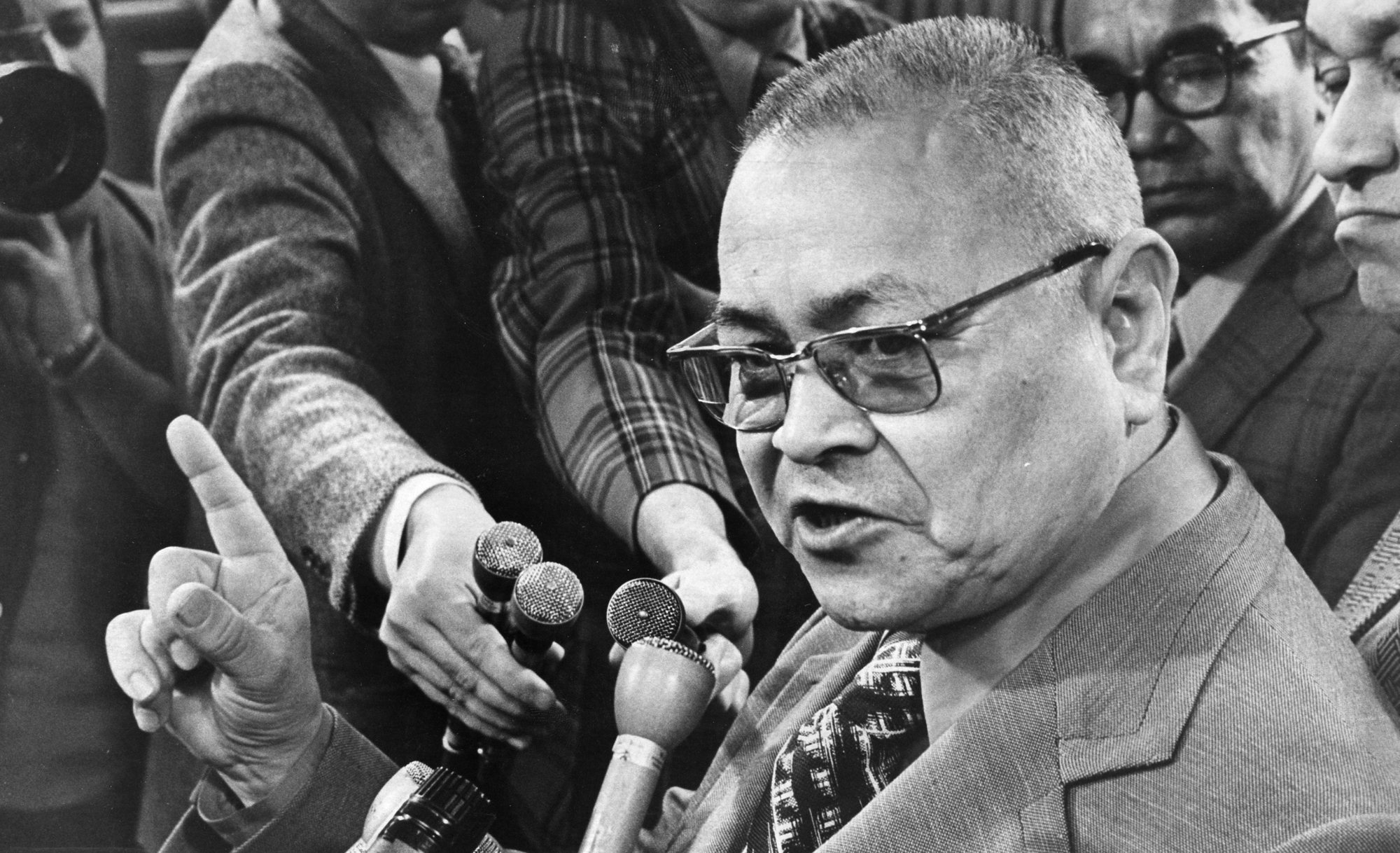Votre centre d'amitié en ligne
Frank Calder made history in his long political career. Calder, a Nisga’a, was the first Aboriginal person to be elected and to sit in a legislature in Canada.
He attended the University of British Columbia and was the first Indigenous person to graduate from the university’s Anglican theological college. After graduation he worked as a trade unionist, machinist and entrepreneur before entering politics. He was also a hereditary chief of the House of Wisinxbiltkw from the Killerwhale Tribe.
While Calder wasn’t the first Indigenous person in Canada to be elected to a legislature (that was Louis Riel, who never got to sit in Parliament), he was the first to be able to take his seat and serve the people of his riding. Calder served as a Co-operative Commonwealth Federation (which would later become the NDP) MLA in B.C’s provincial legislature for 26 years. He also became the first Aboriginal cabinet minister in 1972, but was later dismissed from cabinet for indiscretions and controversy.
Calder may be best known for a case fighting for treaty rights that dealt with Nisga’a land claims. Before that case, there was no clear process for negotiating land claim settlements. Canada established a more official process for negotiating land claims after the Calder Case.
Calder received a number of awards and honours for his work. He was invested as an Officer of the Order of Canada in 1987 and awarded the Order of British Columbia in 2004.
